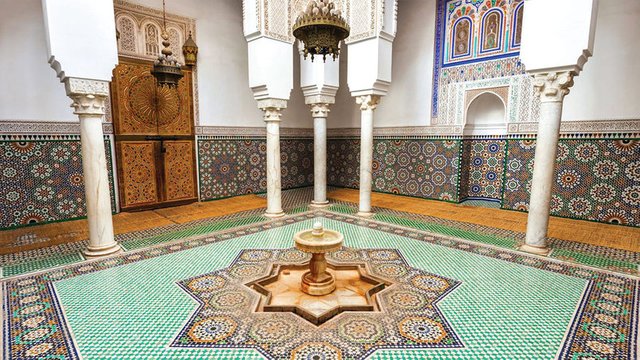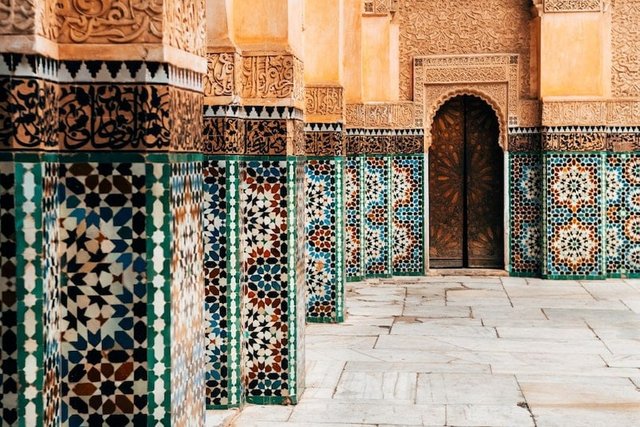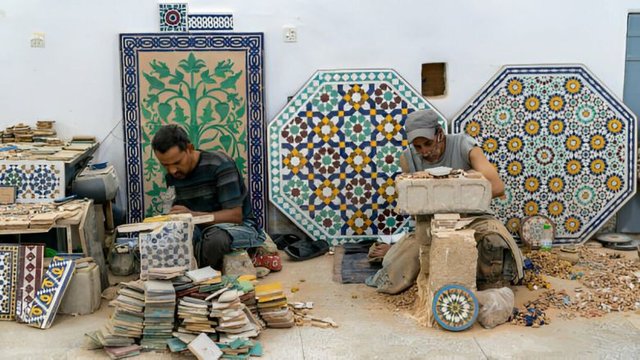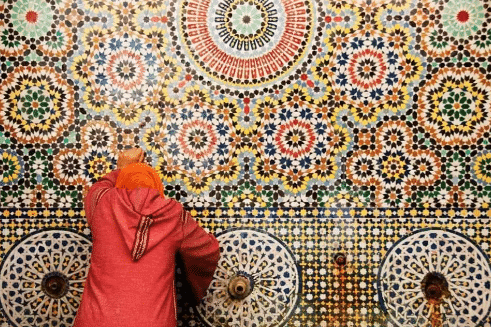Traditional Moroccan Zellige: An Ancient Art and Architectural Jewel
Hello friends! I'd love to introduce you to the beauty of my country, Morocco. Please share your thoughts with me!

Traditional Moroccan Zellige is not merely decorative art; it is a symbol of Moroccan culture that reflects precision, beauty, and deep heritage. Zellige is a significant part of Morocco’s identity and stands as a testament to a civilization that has endured for centuries, adorning mosques, palaces, homes, and public spaces with intricate geometric designs and vibrant colors.
Origins and Evolution of Moroccan Zellige
The art of Zellige traces its roots to the medieval period when Morocco was influenced by Andalusian art, which relied heavily on meticulous geometric patterns. Over time, Zellige developed into a hallmark of Moroccan architecture, expanding its influence beyond mosques to various Moroccan landmarks. Zellige is known for its lively colors, such as sky blue, olive green, and yellow, hues inspired by Morocco’s natural beauty.

The Craft of Zellige: A Journey of Skill and Patience
The process of creating traditional Zellige begins with clay, meticulously prepared and shaped into small tiles called "chekka." The tiles are then painted in distinctive colors and carefully cut with specialized tools to form desired geometric shapes. Each tile is assembled by hand with a high degree of craftsmanship to produce harmonious designs that reflect the Moroccan artisan’s precision and artistry. Every design carries symbolic meaning rooted in Morocco’s rich cultural heritage, making the assembly of Zellige tiles a complete art form that mirrors the soul and uniqueness of each space.

Patterns and Designs in Zellige: The Islamic Architectural Aesthetic
Moroccan Zellige patterns vary, from intricate geometric forms like stars and triangles to plant-inspired motifs. These patterns embody the philosophy of Islamic design, which focuses on beauty and balance. For instance, the eight-pointed star symbolizes harmony and completeness, while other geometric designs emphasize unity. Zellige imparts a spiritual and captivating atmosphere to spaces, creating a sense of peace and beauty that aligns with the religious and spiritual essence of Islamic architecture.

Conclusion: Moroccan Zellige, A Timeless Symbol of Authenticity and Beauty
Traditional Moroccan Zellige is an inseparable part of Morocco’s identity, embodying the beauty of Islamic art and the richness of Moroccan heritage. The continued survival of this ancient art relies on preservation efforts and passing it on to future generations, allowing it to remain a testament to Moroccan creativity and appreciation of beauty.